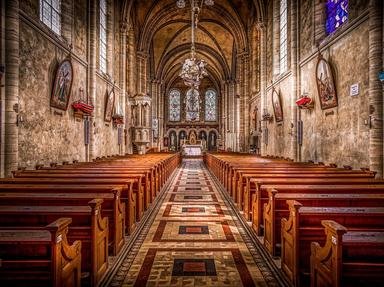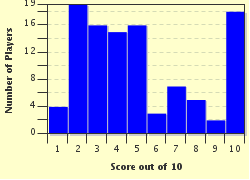Quiz Answer Key and Fun Facts
1. What prominent heresy did the First Council of Nicaea condemn?
2. What resulted from the First Council of Lyon?
3. The Council of Trent was called to respond to which major historical event?
4. The First Council of Constantinople pronounced which man a heretic, after he had been exonerated of earlier heresies by the First Synod of Tyre?
5. Which of the following Protestant doctrines was not condemned at the Council of Trent?
6. Which teaching was firmly established at the First Vatican Council?
7. Which council is the last to be accepted as ecumenical by most Protestant groups?
8. Which of the following was a goal of the First Council of Lateran?
9. Which of the following WAS established in the official documents released by the Second Vatican Council?
10. The Council of Constance ended which major controversy within the Church?
Source: Author
roxas1296
This quiz was reviewed by FunTrivia editor
CellarDoor before going online.
Any errors found in FunTrivia content are routinely corrected through our feedback system.


